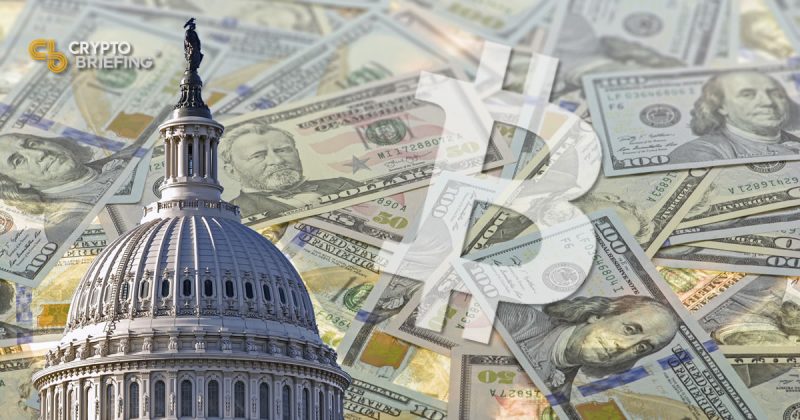
Will Crypto Replace Banking in a Post-COVID World?
Cryptocurrency's growing role in finance could redefine banking, offering alternatives in a low-interest, inflation-prone economy.
The future of banking is going to look different in a post-COVID world, and cryptocurrency is going to be part of the change.
Banking Bust: Quantitative Easing and Low-Interest Rates
The sweeping quantitative easing programs undertaken by central banks around the world in response to COVID-related recessionary forces are unprecedented. On its $2.3 trillion lending support programs, Federal Reserve chairman Jerome Powell told The Brookings Institute:
“We are deploying these lending powers to an unprecedented extent [and] … will continue to use these powers forcefully, proactively, and aggressively until we are confident that we are solidly on the road to recovery.”
Since Mar. 3, the Fed has slashed its target interest rate by 1.5% to a range within zero to 0.25%. The United States isn’t alone, either. Most of Europe has rates hovering at or near 0%. Japan has long been in the negative-rate territory.
Inflation or Deflation?
The global recession that is likely to result from massive spikes in unemployment is of an unknowable duration and severity. If the global economy does spiral downwards into negative growth, there will be significant pressure for prices to fall. However, at the same time, stimulus measures and loose monetary policy will undoubtedly play some role in dampening those forces. Many fear a currency debasement that will lead to high rates of inflation.
The current global economy is also perilously positioned for a prolonged period of stagflation—simultaneous low growth and high inflation. Paul Tudor Jones hinted at that possibility when he told clients in a note that Bitcoin now reminded him of gold in the 1970s.
More Than a Hedge Against Inflation
The arguments about Bitcoin’s inflation-hedging qualities have long been debated. Its volatile nature makes it, prima facie, an imperfect hedge. Its price history means its correlation with anything—equities, commodities, GDP—is around zero. It is historically a genuine non-correlated asset.
Dan Schatt, the co-founder of Cred and former PayPal executive, affirms Bitcoin’s qualities as a hedge against current uncertainty.
“Protests and riots are adding to the woes of coronavirus. Americans are forced to keep their businesses shut as the U.S. dollar continues to suffer. Congress thinks it can solve these issues by injecting more stimulus money, leading to hyperinflation in the long run. Gold and Bitcoin are both up, and like gold, Bitcoin is increasingly seen as a good hedge against times of political and economic uncertainty,” said Schatt.
But Bitcoin has never lived through a recession. It is untested as a safe haven asset under recessionary conditions. In outlier jurisdictions suffering from hyperinflation, there is a level of trust in crypto assets as traditional banking has been crushed by corruption and instability. But Venezuela is not a model on which anyone should be making determinations about asset properties.
However, growing institutional appetite for Bitcoin would suggest investors see it as well-placed to preserve, and perhaps even grow, wealth. That interest has surged post-COVID.
It isn’t just institutional investors that are turning to crypto to preserve their wealth. As interest rates threaten to return negative rates in real terms, especially if inflationary pressures cause sovereign currencies to devalue, crypto offers opportunities for average households.
Can Crypto Replace Banking as We Know It?
Earning interest bank deposits has long been a thing of the past in the western world. Thus, a novel feature of cryptocurrency is that many of them can return attractive rates of interest for average hodlers.
As recently explored by Crypto Briefing, there are several crypto lending and borrowing companies that pay handsome interest rates on crypto holdings and offer collateralized loans. Cred is one of those companies offering interest on crypto, providing as much as 8% APY for holding Bitcoin with them, and even more for dollar-backed stablecoins. This growing infrastructure of open finance, spanning the DeFi ecosystem to centralized players like Cred, appears to be well on its way to replacing banking as we know it.
The timing couldn’t have been better either. As the world hurtles towards a recession, and conservative interest-bearing instruments becoming increasingly scarcer and less attractive, crypto deposits as passive income generators could be set to define the future of finance.
Crypto banking is performing many of the services that banks struggle to perform in this low-interest-rate environment. Crypto itself could prove to fulfill the digital gold narrative long-promised. In a low-interest, potentially inflationary era, passive income and hedging against risk are more necessary than ever.
Disclosure: This article was sponsored by Cred, Crypto Briefing’s partner in Lending and Borrowing. Team members at Crypto Briefing have interest-earning accounts at several lending and borrowing services, including Cred.
